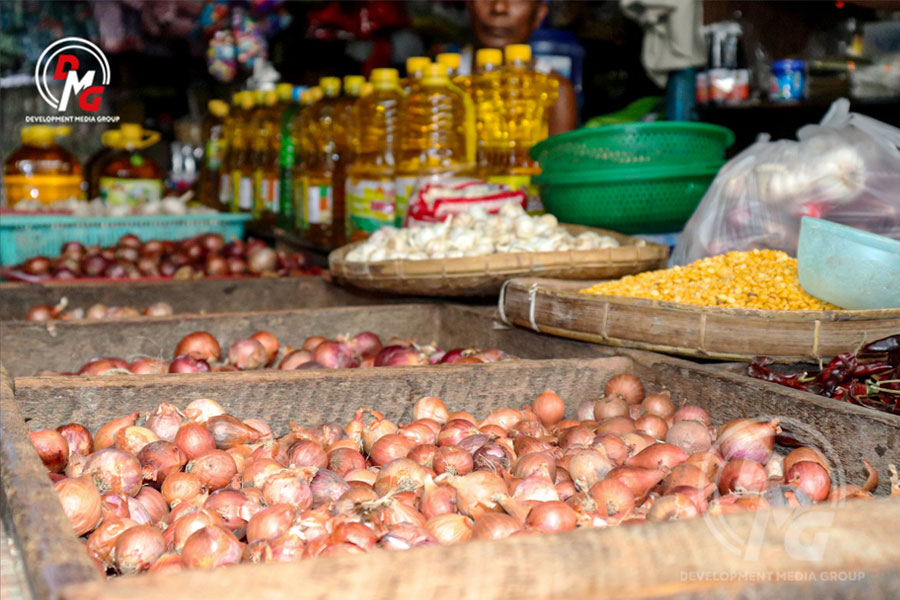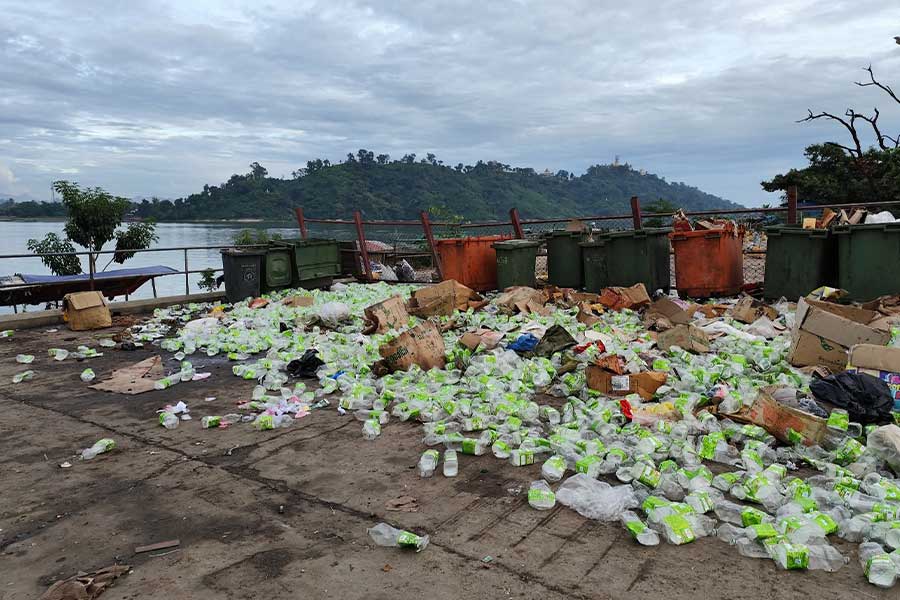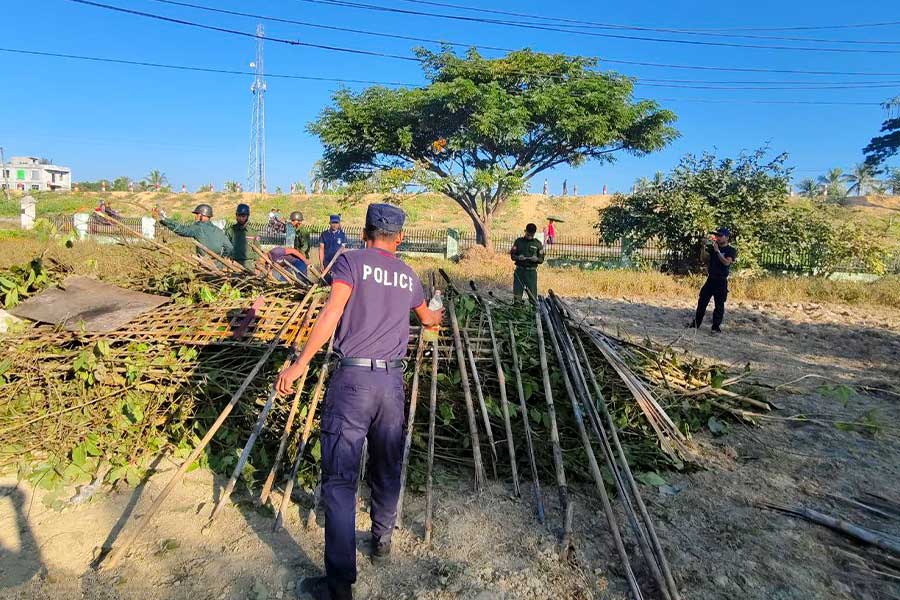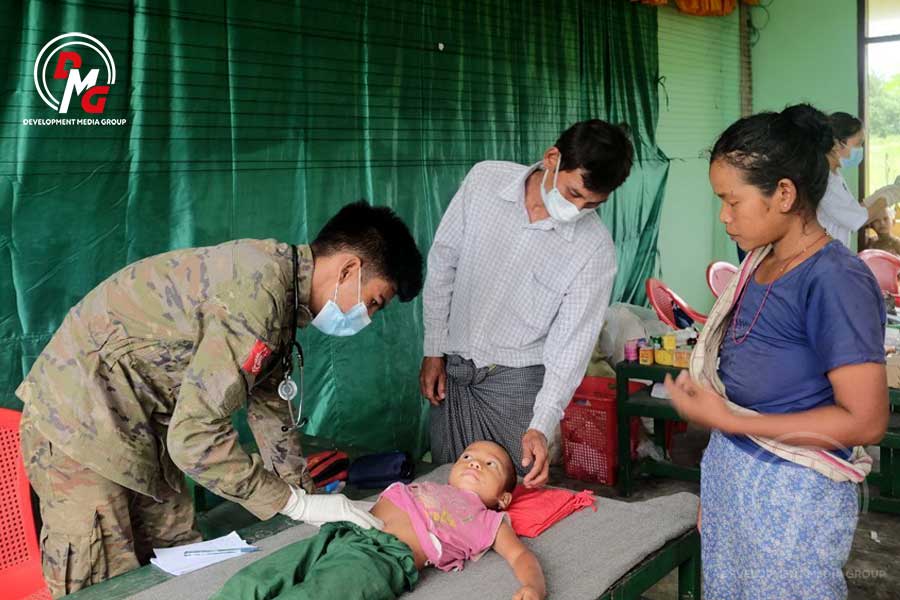- Arakan Army bans illegal two-digit and three-digit lottery gambling in Arakan State
- Indiscriminate plastic waste disposal poses environmental risks in Arakan State
- Mitragyna speciosa leaves fetch K200,000 per viss in Arakan State
- MDSI calls for stronger civilian protection as junta alters airstrike tactics
- Children in Arakan State face rising cases of pneumonia and flu
Stubbornly high commodity prices continue to take economic toll in Arakan State
The prices of basic consumer goods remain high in Arakan State despite the fact that gold prices have fallen and the kyat has slightly increased in value against the US dollar.
02 Oct 2023

DMG Newsroom
2 October 2023, Sittwe
The prices of basic consumer goods remain high in Arakan State despite the fact that gold prices have fallen and the kyat has slightly increased in value against the US dollar.
In August, gold prices reached a record high of 4 million kyats per tical, but have since fallen back to around 3.3 million kyats. And the kyat had appreciated from around 4,000 kyats to 3,260 kyats per dollar on Monday.
Domestic insufficiency is a major factor contributing to price hikes in Arakan State, according to local businesspeople.
“Commodity prices have not fallen significantly,” said U Tin Aung Oo, chairman of the Arakan State Chamber of Commerce and Industry. “Many imported goods are out of stock. And we also have to bring in food from other parts of the country. So, it will take some time until commodity prices decline.”
The regime in August formed a committee tasked with controlling the price rises of basic foodstuffs including rice and cooking oil.
But prices have not yet declined because sellers are selling stocks that were bought while prices were high, according to grocery owner Daw Tin Tin Hla from Arakan State’s Myebon Township.
“If wholesale prices decline, retail prices will also decline,” she said.
DMG was unable to obtain comment from the Arakan State military council’s economic minister, U San Shwe Maung, regarding what the council is doing to curb price hikes in Arakan State.
Soaring food prices are taking a particularly heavy toll on low-income families.
“Previously, 5,000 kyats a day was enough for our family’s meal expenses. 10,000 kyats is not enough now,” said Daw Pan Thazin from Setyoekya ward in Sittwe. “We are not eating meat or fish now. A bunch of roselle leaves sold for 100 kyats previously. It is 300 kyats now.”
Apart from inflation and logistical problems resulting from post-coup political and economic turmoil, market manipulation by business owners is also to blame for price hikes in Arakan State, according to local residents.















.jpg)

